Between the long-simmering softwood lumber dispute and Donald Trump’s renewed tariffs, the hardships facing BC’s forest sector have rarely been greater. Keeping people working and facilities operating challenges even the best of us in this industry. After the recent federal-provincial Forest Summit, some credit is due to both levels of government for at least attempting to provide relief—along with what we hope is a genuine effort to diversify our markets and products. However, much more collaboration and concrete commitment are needed before we can judge these efforts effective. Many suspect the current plans may offer only limited short-term benefit. …Our financial resilience—and therefore our ability to even more assertively innovate, attract investment, and modernize our facilities—has been severely weakened. The result: we are less able to meet society’s changing expectations while sustaining a viable industry.
How has government responded? By blaming Trump for our woes—criticism he may deserve—but largely ignoring its own role in undermining the prosperity of BC’s forest sector. A familiar analogy comes to mind: a strong structure requires a solid foundation. For our industry, that foundation is the regulatory environment we operate within—and it’s failing. …In short, government is expecting different results while changing nothing—and we all know what that defines. …Real leadership begins with accepting the situation as it is and moving decisively toward practical, shared solutions. Unfortunately, there’s little sign of that happening. Over my career, I’ve seen this sector innovate repeatedly to sustain BC’s prosperity. We’ve done it before—and we can do it again. But not with both hands tied behind our back while standing on a grumbling foundation.


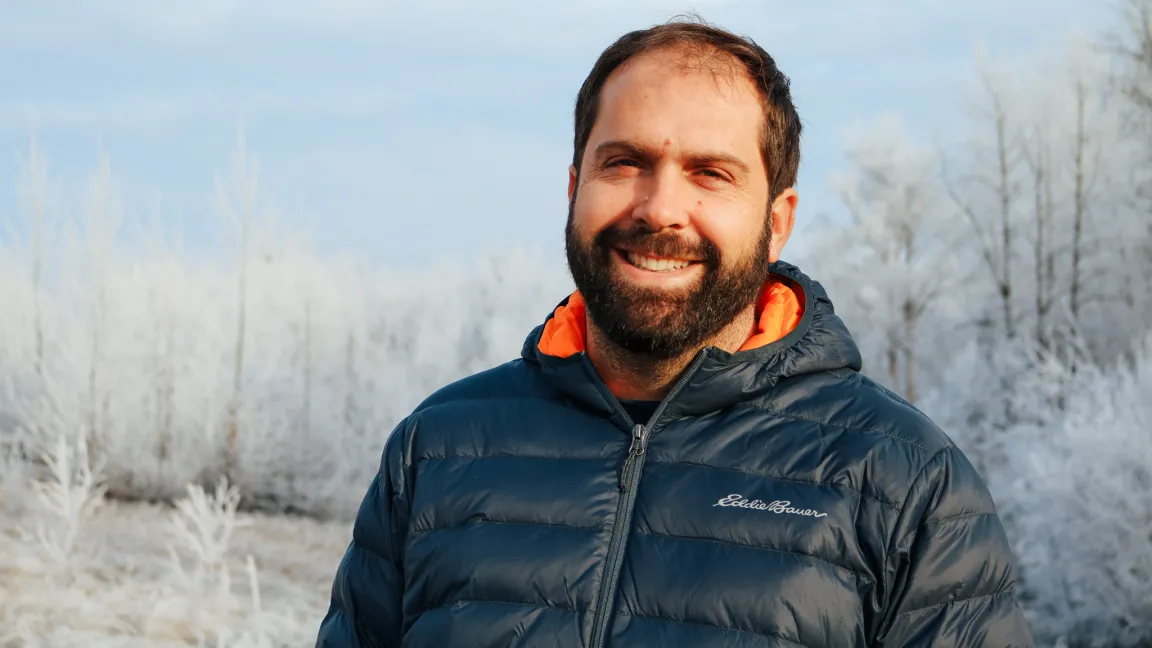





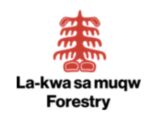 Campbell River, BC — La-kwa sa muqw Forestry Limited Partnership (LKSM) is ready to sit down at the bargaining table with the USW at any time, and has been ready throughout this strike, which it has made clear many times to the USW. However the USW has repeatedly refused to do so, as recently as October 24. Despite repeated invitations from LKSM, the USW has also declined both meaningful negotiations and mediation to assist the bargaining process, unnecessarily prolonging this months-long strike. “LKSM’s First Nations shareholders are dismayed and extremely frustrated by the provincial government’s failure to help both parties to make progress through the appointment of a mediator, especially given the hardships the forestry industry is facing right now,” says Nanwakolas Council President Dallas Smith. “Mediation is an opportunity to bring the parties together …and yet BC still has failed to appoint a mediator after all this time.”
Campbell River, BC — La-kwa sa muqw Forestry Limited Partnership (LKSM) is ready to sit down at the bargaining table with the USW at any time, and has been ready throughout this strike, which it has made clear many times to the USW. However the USW has repeatedly refused to do so, as recently as October 24. Despite repeated invitations from LKSM, the USW has also declined both meaningful negotiations and mediation to assist the bargaining process, unnecessarily prolonging this months-long strike. “LKSM’s First Nations shareholders are dismayed and extremely frustrated by the provincial government’s failure to help both parties to make progress through the appointment of a mediator, especially given the hardships the forestry industry is facing right now,” says Nanwakolas Council President Dallas Smith. “Mediation is an opportunity to bring the parties together …and yet BC still has failed to appoint a mediator after all this time.”


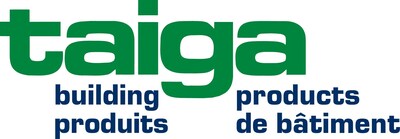
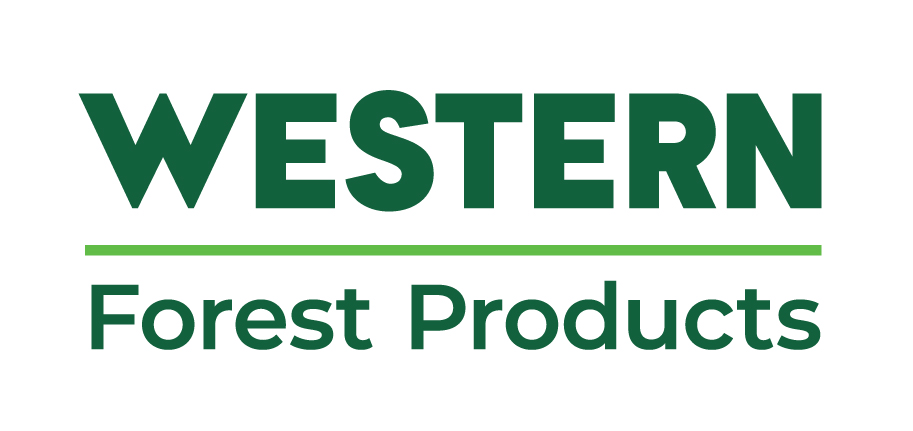 Vancouver, BC — Western Forest Products Inc. reported Adjusted EBITDA of negative $65.9 million in the third quarter of 2025, which included a non-cash export duty expense of $59.5 million related to the determination of final duty rates from the sixth Administrative Review. In comparison, the Company reported Adjusted EBITDA of negative $10.7 million in the third quarter of 2024, which included a $1.0 million export duty recovery related to the determination of final duty rates from the fifth AR, and Adjusted EBITDA of $0.5 million in the second quarter of 2025. Net loss was $61.3 million in the third quarter of 2025, as compared to a net loss of $19.6 million in the third quarter of 2024, and net loss of $17.4 million in the second quarter of 2025.
Vancouver, BC — Western Forest Products Inc. reported Adjusted EBITDA of negative $65.9 million in the third quarter of 2025, which included a non-cash export duty expense of $59.5 million related to the determination of final duty rates from the sixth Administrative Review. In comparison, the Company reported Adjusted EBITDA of negative $10.7 million in the third quarter of 2024, which included a $1.0 million export duty recovery related to the determination of final duty rates from the fifth AR, and Adjusted EBITDA of $0.5 million in the second quarter of 2025. Net loss was $61.3 million in the third quarter of 2025, as compared to a net loss of $19.6 million in the third quarter of 2024, and net loss of $17.4 million in the second quarter of 2025.






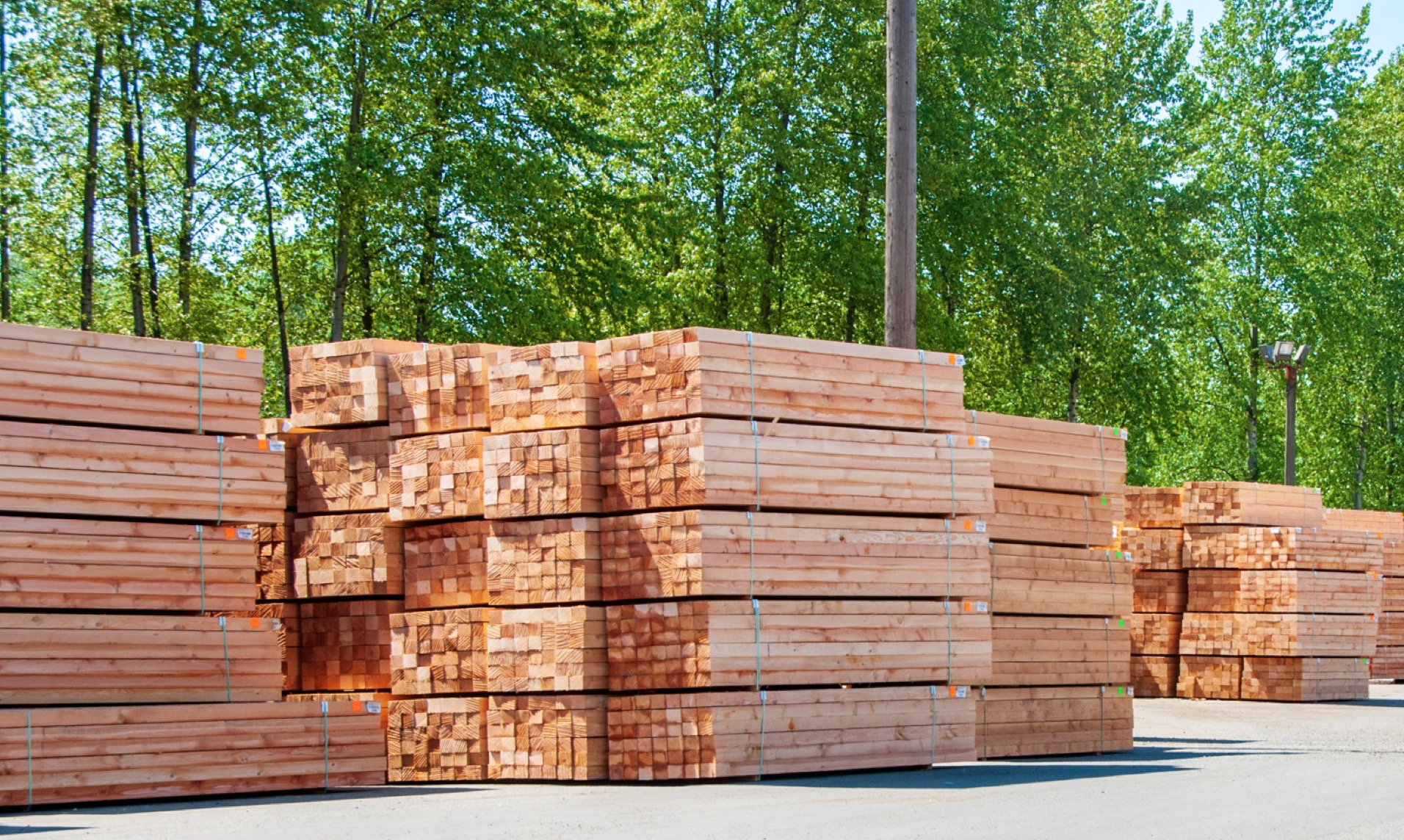 A technique used for the long-term preservation of human and animal remains is now being tested on Western red cedar. Plastination, originally designed to embalm the dead, is now being used to improve the functionality and durability of advanced composite materials. A team from UBC Okanagan’s School of Engineering has been experimenting with the technique and published a study that examined the
A technique used for the long-term preservation of human and animal remains is now being tested on Western red cedar. Plastination, originally designed to embalm the dead, is now being used to improve the functionality and durability of advanced composite materials. A team from UBC Okanagan’s School of Engineering has been experimenting with the technique and published a study that examined the 

 Vernon, Revelstoke and Penticton will be included in a province-wide protest demanding a halt to old-growth logging on Tuesday. In Vernon, it’s being dubbed a “showdown at BC Timber Sales,” and the local organizers, which include the Peachland Watershed Protection Alliance and the Interior Watershed Task Force, are driving that adversarial image home by encouraging protesters to don western garb when they rally outside the Ministry of Forests office from 11 a.m. to 2 p.m. Nov. 18. Similar rallies are being held in Victoria, Nelson, Revelstoke, Smithers, Courtenay, Parksville, Prince George, Grand Forks, Penticton, Port Coquitlam, and Powell River. …Protest organizers took aim at Forestry Minister Ravi Parmar, saying seven B.C. mills have closed during his eight-month tenure. “Meanwhile he is off in Asia promising wood we do (not) have and opening trade offices … promising trees we do not grow,” the press release states. …A website,
Vernon, Revelstoke and Penticton will be included in a province-wide protest demanding a halt to old-growth logging on Tuesday. In Vernon, it’s being dubbed a “showdown at BC Timber Sales,” and the local organizers, which include the Peachland Watershed Protection Alliance and the Interior Watershed Task Force, are driving that adversarial image home by encouraging protesters to don western garb when they rally outside the Ministry of Forests office from 11 a.m. to 2 p.m. Nov. 18. Similar rallies are being held in Victoria, Nelson, Revelstoke, Smithers, Courtenay, Parksville, Prince George, Grand Forks, Penticton, Port Coquitlam, and Powell River. …Protest organizers took aim at Forestry Minister Ravi Parmar, saying seven B.C. mills have closed during his eight-month tenure. “Meanwhile he is off in Asia promising wood we do (not) have and opening trade offices … promising trees we do not grow,” the press release states. …A website, 
 Biologist Amber Peters and the Valhalla Wilderness Society (VWS) screened their highly-anticipated film, Safe Haven: The Rainbow-Jordan Wilderness, about the biodiverse and nearly-untouched inland temperate rainforest just north of Revelstoke. “This is the best example of a fully-intact inland temperate rainforest,” Peters said. … The Rainbow-Jordan is likely “the largest pocket of intact temperate rainforest in the region” around Revelstoke, Wildsight Revelstoke branch manager Reanne Harvey said. “The forest itself has been in that space for over a thousand years.” … The 30-minute film, produced in collaboration with Damien Gillis, advocates for the B.C. government to protect these expanses of hard-to-access and undisturbed old-growth from logging as a Class A provincial park. Unlike an old-growth protected area or Indigenous Protected and Conserved Area, park status would ensure legislated protection for the Rainbow-Jordan, Peters told some 200 attendees at the screening.
Biologist Amber Peters and the Valhalla Wilderness Society (VWS) screened their highly-anticipated film, Safe Haven: The Rainbow-Jordan Wilderness, about the biodiverse and nearly-untouched inland temperate rainforest just north of Revelstoke. “This is the best example of a fully-intact inland temperate rainforest,” Peters said. … The Rainbow-Jordan is likely “the largest pocket of intact temperate rainforest in the region” around Revelstoke, Wildsight Revelstoke branch manager Reanne Harvey said. “The forest itself has been in that space for over a thousand years.” … The 30-minute film, produced in collaboration with Damien Gillis, advocates for the B.C. government to protect these expanses of hard-to-access and undisturbed old-growth from logging as a Class A provincial park. Unlike an old-growth protected area or Indigenous Protected and Conserved Area, park status would ensure legislated protection for the Rainbow-Jordan, Peters told some 200 attendees at the screening.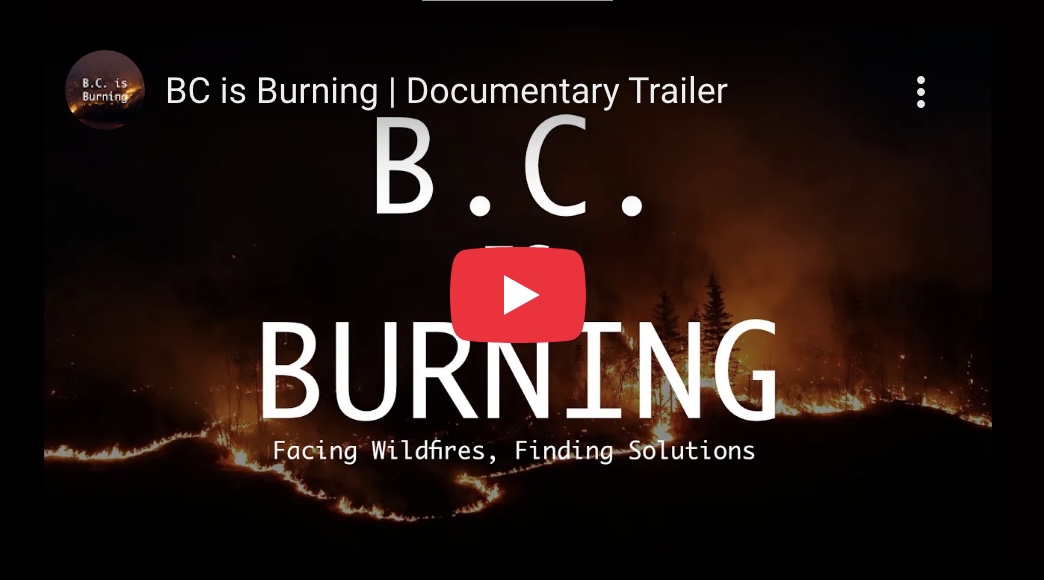 Murray Wilson believes active forest management is crucial to reducing greenhouse emissions. The connection between the two is wildfires. “If you can reduce wildfires, just on carbon alone – your CO2 emissions – you’re doing a good thing,” said the retired Vernon forester… For the past year, Wilson has been sharing this message, about the need for active forest management, with residents and politicians through his new and first film, the documentary B.C. is Burning. …The Shuswap Climate Action Society, Forsite Consultants Ltd. and Canoe Forest Products will present the film in Salmon Arm on Nov. 26, with a Q&A moderated by Salmon Arm Mayor Alan Harrison. …Wilson will be screening the documentary at the B.C. Legislature. He said government officials, including B.C. Wildfire assistant deputy minister Rob Schweitzer, featured in the film, have taken part in past screenings and question periods. He views this as a sign the documentary is resonating with the Province.
Murray Wilson believes active forest management is crucial to reducing greenhouse emissions. The connection between the two is wildfires. “If you can reduce wildfires, just on carbon alone – your CO2 emissions – you’re doing a good thing,” said the retired Vernon forester… For the past year, Wilson has been sharing this message, about the need for active forest management, with residents and politicians through his new and first film, the documentary B.C. is Burning. …The Shuswap Climate Action Society, Forsite Consultants Ltd. and Canoe Forest Products will present the film in Salmon Arm on Nov. 26, with a Q&A moderated by Salmon Arm Mayor Alan Harrison. …Wilson will be screening the documentary at the B.C. Legislature. He said government officials, including B.C. Wildfire assistant deputy minister Rob Schweitzer, featured in the film, have taken part in past screenings and question periods. He views this as a sign the documentary is resonating with the Province. Local residents are invited to share their input on the development of the Mackenzie forest landscape plan (FLP), which will guide long-term forest management in the area. “This is an opportunity for Mackenzie residents to share what matters most about your forests,” said Ravi Parmar, Minister of Forests. “Forests are part of who we are and your voices guide how they’re managed.” People can share their thoughts through a survey, open from Monday, Nov. 10 until Dec. 22, 2025. …FLPs are intended to be developed in partnership with First Nations to ensure meaningful participation in forestry planning and decision-making. Tsay Keh Dene Nation has partnered with the Province on the Mackenzie FLP. Engagement with other First Nations in the area continues. Community engagement is also a key part of every FLP, ensuring everyone in the area has an opportunity to be heard.
Local residents are invited to share their input on the development of the Mackenzie forest landscape plan (FLP), which will guide long-term forest management in the area. “This is an opportunity for Mackenzie residents to share what matters most about your forests,” said Ravi Parmar, Minister of Forests. “Forests are part of who we are and your voices guide how they’re managed.” People can share their thoughts through a survey, open from Monday, Nov. 10 until Dec. 22, 2025. …FLPs are intended to be developed in partnership with First Nations to ensure meaningful participation in forestry planning and decision-making. Tsay Keh Dene Nation has partnered with the Province on the Mackenzie FLP. Engagement with other First Nations in the area continues. Community engagement is also a key part of every FLP, ensuring everyone in the area has an opportunity to be heard. 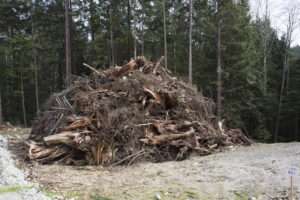 A First Nations joint-venture forestry company is under fire for its burning practices. C̕awak ʔqin Forestry recently lit up a series of burn piles only a few metres from where a local company turns post harvest wood waste into much needed hogfuel for the Catalyst paper mill. Under provincial guidelines, forest harvesters are supposed to look for grinding or chipping opportunities ahead of burning. Keith Wyton from the local air quality council says local governments should push foresters to not burn. …Forest companies are allowed to pile and burn slash at this time of year, but Wyton wants the BC Government to step in. …C̕awak ʔqin General Manager Geoff Payne said they were operating within provincial guidelines and were permitted to burn. C̕awak ʔqin Forestry is a joint venture between Western Forest Products and the Huu-ay-aht First Nation.
A First Nations joint-venture forestry company is under fire for its burning practices. C̕awak ʔqin Forestry recently lit up a series of burn piles only a few metres from where a local company turns post harvest wood waste into much needed hogfuel for the Catalyst paper mill. Under provincial guidelines, forest harvesters are supposed to look for grinding or chipping opportunities ahead of burning. Keith Wyton from the local air quality council says local governments should push foresters to not burn. …Forest companies are allowed to pile and burn slash at this time of year, but Wyton wants the BC Government to step in. …C̕awak ʔqin General Manager Geoff Payne said they were operating within provincial guidelines and were permitted to burn. C̕awak ʔqin Forestry is a joint venture between Western Forest Products and the Huu-ay-aht First Nation.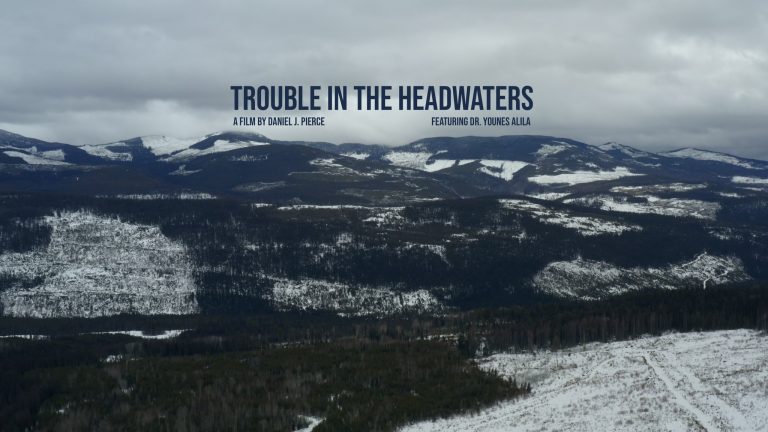 Trouble in the Headwaters, a 25-minute documentary by Daniel J. Pierce, is coming to Golden! This film sheds light on the disastrous 2018 flood event in Grand Forks, BC, and features UBC forest hydrology and watershed management Professor Dr. Younes Alila. Both Daniel and Younes will be present to introduce the film and answer questions afterwards as part of a panel discussion with local experts and Wildsight’s forestry team. Join us to explore the complex connection between clearcut logging and the increasing frequency of floods, landslides and droughts across our province.
Trouble in the Headwaters, a 25-minute documentary by Daniel J. Pierce, is coming to Golden! This film sheds light on the disastrous 2018 flood event in Grand Forks, BC, and features UBC forest hydrology and watershed management Professor Dr. Younes Alila. Both Daniel and Younes will be present to introduce the film and answer questions afterwards as part of a panel discussion with local experts and Wildsight’s forestry team. Join us to explore the complex connection between clearcut logging and the increasing frequency of floods, landslides and droughts across our province. 
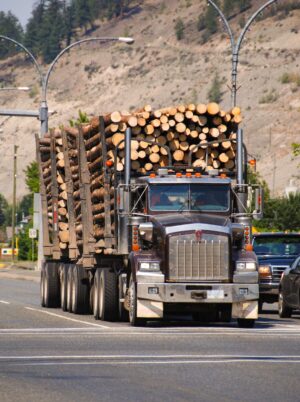 ALBERTA — Crowsnest Pass, the lowest pass through the Rocky Mountains between New Mexico and Jasper National Park, is home to Alberta’s rarest, most tree-species-rich forest. Some species growing here are as rare in Alberta as sage grouse and woodland caribou. …Trees don’t thrive within this forest. They cling to life. …A question I’ve long posed to society and the managers of southwestern Alberta’s matchstick forest is this: Is it economically viable to manage this forest for timber production? …Some years ago, I was selected to sit on a Government of Alberta advisory committee creating a vision for future management of this forest. …Alberta’s forest managers, responding to the problem they helped create, have now placed a new prescription on the pharmacist’s cutting block. The old prescription — clear-cut logging. The new prescription — profoundly expanded clear-cut logging.
ALBERTA — Crowsnest Pass, the lowest pass through the Rocky Mountains between New Mexico and Jasper National Park, is home to Alberta’s rarest, most tree-species-rich forest. Some species growing here are as rare in Alberta as sage grouse and woodland caribou. …Trees don’t thrive within this forest. They cling to life. …A question I’ve long posed to society and the managers of southwestern Alberta’s matchstick forest is this: Is it economically viable to manage this forest for timber production? …Some years ago, I was selected to sit on a Government of Alberta advisory committee creating a vision for future management of this forest. …Alberta’s forest managers, responding to the problem they helped create, have now placed a new prescription on the pharmacist’s cutting block. The old prescription — clear-cut logging. The new prescription — profoundly expanded clear-cut logging.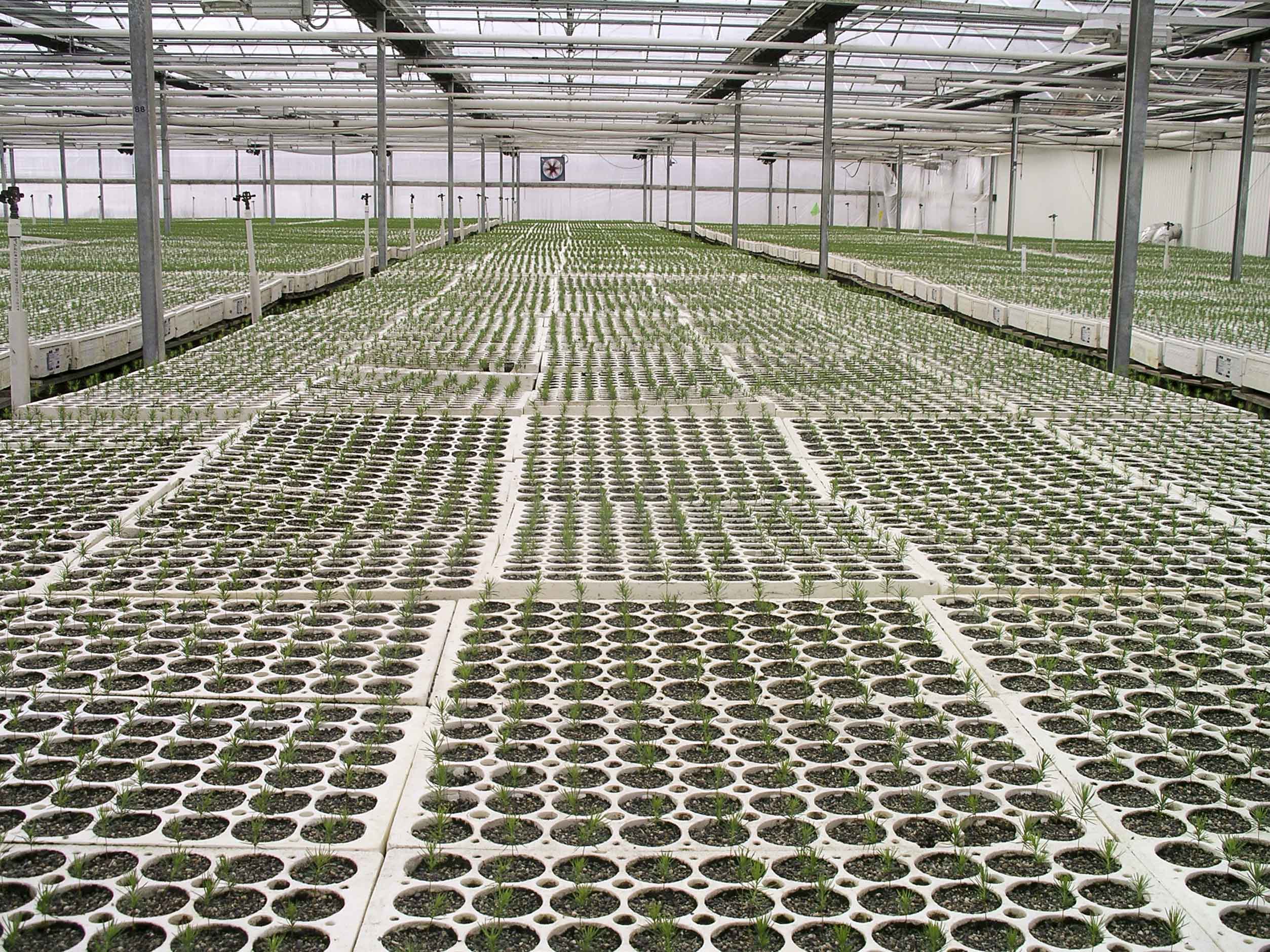 The PRT tree seedling nursery …with locations in Canada and the United States is North America’s largest producer of container-grown forest seedlings. …But at time when the forestry sector is facing hurdles such as softwood lumber duties and new American tariffs, the 2 Billion Trees program will be scrapped in the proposed federal 2025 budget. …a billion trees would have been grown from seed in nurseries like PRT and then planted across Canada. …Brinkman Reforestation is the largest tree planting company in Canada and says the industry is facing enough hurdles without having the 2 Billion Trees program cancelled. …In Black Creek, three generations of the same family have been growing tree seedlings at Sylvan Vale Nurseries. …manager Siriol Paquet says extra programs like 2 Billion Trees are important at at time when logging is declining, because if trees aren’t being cut, then they don’t need to be replaced with new ones.
The PRT tree seedling nursery …with locations in Canada and the United States is North America’s largest producer of container-grown forest seedlings. …But at time when the forestry sector is facing hurdles such as softwood lumber duties and new American tariffs, the 2 Billion Trees program will be scrapped in the proposed federal 2025 budget. …a billion trees would have been grown from seed in nurseries like PRT and then planted across Canada. …Brinkman Reforestation is the largest tree planting company in Canada and says the industry is facing enough hurdles without having the 2 Billion Trees program cancelled. …In Black Creek, three generations of the same family have been growing tree seedlings at Sylvan Vale Nurseries. …manager Siriol Paquet says extra programs like 2 Billion Trees are important at at time when logging is declining, because if trees aren’t being cut, then they don’t need to be replaced with new ones.
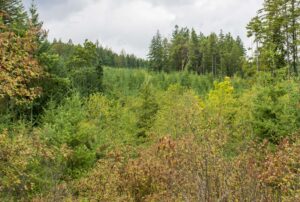 The steep flanks of Tsitika Mountain on northern Vancouver Island are scarred with clearcuts and slash piles almost to the boundary of the Tsitika Mountain and Robson Bight ecological reserves. High above the Tsitika River, 34 hectares of towering conifers, cliffs, and waterfalls are on the auction block. The parcel, labelled TA 1375 by BC Timber Sales, was recommended for deferral by BC’s advisory panel. That would have suspended logging, possibly permanently. Instead, BCTS is putting TA 1375 up for sale. …The steep and rugged terrain is a challenge for prospective loggers, but they face plenty of other obstacles. …Independent researchers at Tsitika Mountain made a surprising discovery this year: a Pacific Wild program recorded over 300 marbled murrelets flying through the area in one month.
The steep flanks of Tsitika Mountain on northern Vancouver Island are scarred with clearcuts and slash piles almost to the boundary of the Tsitika Mountain and Robson Bight ecological reserves. High above the Tsitika River, 34 hectares of towering conifers, cliffs, and waterfalls are on the auction block. The parcel, labelled TA 1375 by BC Timber Sales, was recommended for deferral by BC’s advisory panel. That would have suspended logging, possibly permanently. Instead, BCTS is putting TA 1375 up for sale. …The steep and rugged terrain is a challenge for prospective loggers, but they face plenty of other obstacles. …Independent researchers at Tsitika Mountain made a surprising discovery this year: a Pacific Wild program recorded over 300 marbled murrelets flying through the area in one month. NANAIMO, BC: Following Vancouver Island’s devastating wildfire season, Mosaic is focusing on ways it can help reduce the chances of fires starting or limit their damage. Mosaic responded to 34 wildfires in 2025—a 19% increase over the previous year’s 26 fires. This year, all five of the most significant blazes were human-caused. The first concerning fire ignited near Campbell River in early May, making 2025 one of the earliest wildfire starts for the company. The Mount Underwood wildfire near Port Alberni burned almost 2,400 hectares of Mosaic lands—roughly the size of the city of Duncan—destroying new forests and conserved old growth while causing community evacuations and road closures. Throughout the season, Mosaic’s fire crews worked with BC Wildfire Service, contractors, First Nations and emergency responders to protect communities and forests.
NANAIMO, BC: Following Vancouver Island’s devastating wildfire season, Mosaic is focusing on ways it can help reduce the chances of fires starting or limit their damage. Mosaic responded to 34 wildfires in 2025—a 19% increase over the previous year’s 26 fires. This year, all five of the most significant blazes were human-caused. The first concerning fire ignited near Campbell River in early May, making 2025 one of the earliest wildfire starts for the company. The Mount Underwood wildfire near Port Alberni burned almost 2,400 hectares of Mosaic lands—roughly the size of the city of Duncan—destroying new forests and conserved old growth while causing community evacuations and road closures. Throughout the season, Mosaic’s fire crews worked with BC Wildfire Service, contractors, First Nations and emergency responders to protect communities and forests.  Local governments are frustrated after receiving a long-awaited answer to when legislative changes are coming to the law governing how some forest lands are managed in B.C. The answer: with the trade war targeting B.C. lumber, the priority is protecting forestry jobs. …The 2003 Private Managed Forest Land (PMFL) Act puts no limit on the volume of timber that can be harvested, contrary to logging on Crown land. It’s administered by the Private Managed Forest Council, two of the five members of which have active vested interest in PMFLs. …The ministry maintains modernization to the act is being considered. In July… CBC reported the ministry is “working to modernize the act following the 2019 review.” When asked what changed between July and August, the ministry repeated it “continues to work with the Private Forest Landowners Association and the Managed Forest Council to modernize the Private Managed Forest Land Program.”
Local governments are frustrated after receiving a long-awaited answer to when legislative changes are coming to the law governing how some forest lands are managed in B.C. The answer: with the trade war targeting B.C. lumber, the priority is protecting forestry jobs. …The 2003 Private Managed Forest Land (PMFL) Act puts no limit on the volume of timber that can be harvested, contrary to logging on Crown land. It’s administered by the Private Managed Forest Council, two of the five members of which have active vested interest in PMFLs. …The ministry maintains modernization to the act is being considered. In July… CBC reported the ministry is “working to modernize the act following the 2019 review.” When asked what changed between July and August, the ministry repeated it “continues to work with the Private Forest Landowners Association and the Managed Forest Council to modernize the Private Managed Forest Land Program.”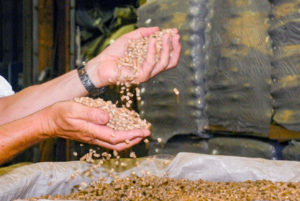 Drax power plant has continued to burn 250-year-old trees sourced from some of Canada’s oldest forests despite growing scrutiny of its sustainability claims, forestry experts say. A new report suggests it is “highly likely” that Britain’s biggest power plant sourced some wood from ecologically valuable forests as recently as this summer. Drax, Britain’s single biggest source of carbon emissions, has received billions of pounds in subsidies from burning biomass derived largely from wood. The report, by Stand.earth, claims that a subsidiary of Drax Group received hundreds of truckloads of whole logs at its biomass pellet sites throughout 2024 and into 2025, which were likely to have included trees that were hundreds of years old. The report could raise fresh questions for the owner of the North Yorkshire power plant, which has been forced in recent years to defend its sustainability claims while receiving more than £2m a day in green energy subsidies from UK bill payers.
Drax power plant has continued to burn 250-year-old trees sourced from some of Canada’s oldest forests despite growing scrutiny of its sustainability claims, forestry experts say. A new report suggests it is “highly likely” that Britain’s biggest power plant sourced some wood from ecologically valuable forests as recently as this summer. Drax, Britain’s single biggest source of carbon emissions, has received billions of pounds in subsidies from burning biomass derived largely from wood. The report, by Stand.earth, claims that a subsidiary of Drax Group received hundreds of truckloads of whole logs at its biomass pellet sites throughout 2024 and into 2025, which were likely to have included trees that were hundreds of years old. The report could raise fresh questions for the owner of the North Yorkshire power plant, which has been forced in recent years to defend its sustainability claims while receiving more than £2m a day in green energy subsidies from UK bill payers. WorkSafeBC has fined the Provincial Government over $750,000 in connection with a pair of incidents involving the BC Wildfire Service that date back to 2023. An administrative penalty of $759,369 was levied on Sept. 25 following investigations into the two incidents – one of which led to the death of a firefighter near Fort St. John, while the other could have killed or injured multiple firefighters in the North Shuswap. In that North Shuswap incident, previous inspection reports by WorkSafeBC determined that a group of five Brazilian firefighters became “trapped by extreme fire behavior” during a planned ignition. …WorkSafeBC determined that a lack of planning, training, and communication were all contributing factors. …The other incident dates back to July 28, 2023, when 25-year-old firefighter, Zak Muise, was killed while fighting the Donnie Creek fire. WorkSafeBC determined that neither worker was wearing a helmet, the passenger had not been using a seatbelt, and the passenger-side retention netting had been damaged.
WorkSafeBC has fined the Provincial Government over $750,000 in connection with a pair of incidents involving the BC Wildfire Service that date back to 2023. An administrative penalty of $759,369 was levied on Sept. 25 following investigations into the two incidents – one of which led to the death of a firefighter near Fort St. John, while the other could have killed or injured multiple firefighters in the North Shuswap. In that North Shuswap incident, previous inspection reports by WorkSafeBC determined that a group of five Brazilian firefighters became “trapped by extreme fire behavior” during a planned ignition. …WorkSafeBC determined that a lack of planning, training, and communication were all contributing factors. …The other incident dates back to July 28, 2023, when 25-year-old firefighter, Zak Muise, was killed while fighting the Donnie Creek fire. WorkSafeBC determined that neither worker was wearing a helmet, the passenger had not been using a seatbelt, and the passenger-side retention netting had been damaged.